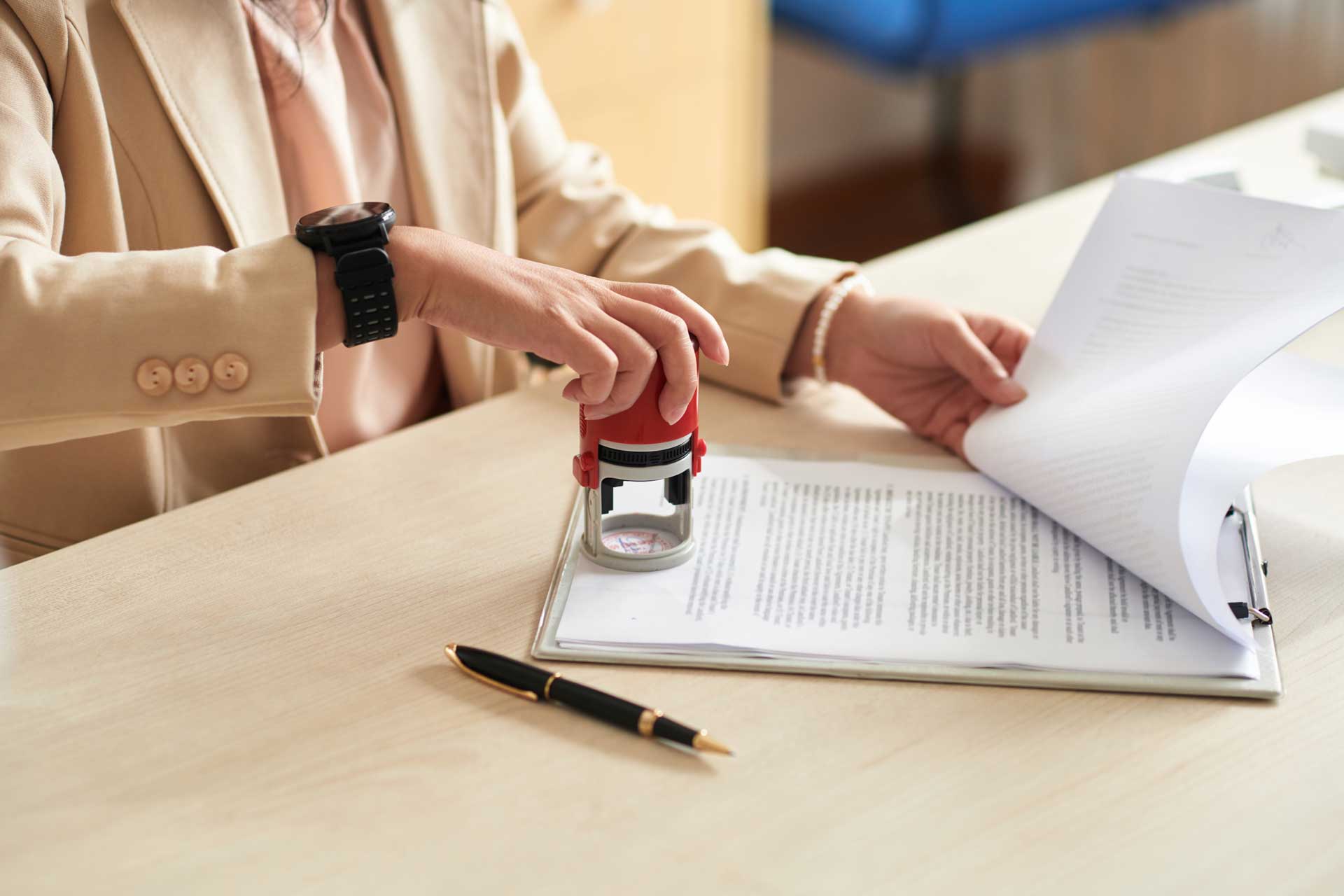How to Handle a Notarization When a Signer is Elderly or Has Diminished Capacity
Table of Contents
Notarizing documents for elderly signers or those with diminished capacity requires extra care to ensure willingness, mental competence, and protection against undue influence. A notary’s role is to confirm that the signer is mentally aware, acting voluntarily, and not being coerced into signing.
This guide provides strategies for evaluating mental capacity, handling difficult situations, and safeguarding the integrity of the notarization process.
Why Mental Capacity Matters in Notarization
A signer must have the mental ability to understand what they are signing. If an individual lacks awareness or is pressured, the notarization can be challenged or invalidated later. Notaries must be vigilant in assessing mental competence and ensuring voluntary participation.
Common Situations Involving Elderly Signers
- The signer appears confused or disoriented.
- Family members or caregivers speak on behalf of the signer.
- The signer has memory loss or a diagnosed cognitive condition.
- The signer seems hesitant, fearful, or pressured.
If doubts arise about the signer’s capacity or willingness, the notary must take extra steps before proceeding.
How to Assess a Signer’s Mental Capacity
Notaries are not medical professionals, but they must assess whether the signer understands the document and signs without coercion.
| Assessment Question | Why It’s Important |
|---|---|
| “Do you understand what you are signing today?” | Confirms basic awareness of the document. |
| “Can you explain the purpose of this document?” | Ensures the signer comprehends the legal effect. |
| “Are you signing this document of your own free will?” | Detects possible coercion or undue influence. |
| “Who asked you to sign this document?” | Identifies potential outside pressure. |
If the signer struggles to answer, seems confused, or appears unaware, the notary should not proceed with the notarization.
Recognizing Signs of Undue Influence
Elderly or vulnerable signers risk being pressured into signing documents against their will. Notaries must watch for red flags indicating possible undue influence.
Warning Signs of Undue Influence:
- A family member or caregiver answers questions for the signer.
- The signer appears anxious, hesitant, or fearful.
- Someone pressures the signer to hurry or not ask questions.
- The signer avoids eye contact or looks at another person for approval.
If undue influence is suspected, the notary must refuse the notarization.
Steps to Take When a Signer’s Capacity is in Question
If a signer’s competency is uncertain, the notary should take extra precautions before proceeding.
| Step | Action |
|---|---|
| Assess the signer’s awareness. | Ask simple questions to confirm understanding. |
| Speak privately with the signer. | Ensure they are not being coerced. |
| Observe the signer’s behavior. | Look for confusion, hesitation, or distress. |
| Require proper identification. | Verify the signer’s identity and avoid impersonation. |
| Document concerns in the notary journal. | Keep detailed notes on anything unusual. |
If the notary is still unsure, they should refuse the notarization rather than risk an invalid document.
What to Do If a Family Member Tries to Speak for the Signer
Sometimes, family members or caregivers try to speak on behalf of an elderly signer. While their intentions may be good, notaries must ensure the signer makes the decision.
How to Handle the Situation:
- Inform the family member that only the signer can communicate with the notary.
- If necessary, ask to speak privately with the signer.
- If the family member insists on controlling the process, refuse the notarization.
A notary’s role is to ensure the signer makes an independent decision.
Handling Situations Involving Power of Attorney (POA)
If an elderly signer has a Power of Attorney (POA) agent, notaries must be clear on what can and cannot be notarized.
| Situation | Can the Notary Proceed? |
|---|---|
| The POA agent is signing for the principal. | Yes, if the POA document allows it. |
| The principal (elderly signer) is signing but seems confused. | No, the notary must confirm competence. |
| The family asks the notary to “just sign it” because the signer has dementia. | No, the notary must refuse. |
| The notary is unsure if the POA is valid. | No, the signer should consult an attorney. |
When in doubt, refer the client to legal counsel before notarizing any POA-related document.
When a Notary Must Refuse a Notarization
If a signer’s mental capacity is in doubt or there are signs of undue influence, the notary must refuse the notarization.
Valid Reasons to Refuse a Notarization:
- The signer does not understand what they are signing.
- The signer appears disoriented, confused, or unresponsive.
- A family member or third party is making decisions for the signer.
- The signer is being pressured to sign.
Notaries should always document the reason for refusal in their notary journal to protect themselves in case of future legal disputes.
Best Practices for Notarizing Documents for Elderly Signers
Taking extra precautions ensures that elderly signers are protected and their documents remain legally valid.
| Best Practice | Why It Matters |
|---|---|
| Conduct the notarization in a quiet environment. | Reduces distractions and helps the signer focus. |
| Verify the signer’s awareness before proceeding. | Prevents notarizing for someone who lacks capacity. |
| Require identification, even if a family member is present. | Ensures the correct person is signing. |
| Watch for signs of coercion or undue influence. | Protects the signer’s rights and prevents fraud. |
| Document concerns in the notary journal. | Provides legal protection if the notarization is challenged. |
By following these steps, notaries can help protect elderly individuals from potential fraud or manipulation.
Protecting Elderly Signers and Maintaining Notarial Integrity
Handling notarizations for elderly or mentally impaired signers requires extra caution and professionalism. Notaries must ensure that every signer is mentally competent, acting voluntarily, and fully aware of what they are signing.
Key Takeaways:
- Assess the signer’s awareness by asking simple questions.
- Watch for signs of undue influence and refuse if necessary.
- Do not allow family members to answer for the signer.
- Ensure the signer understands the document before proceeding.
- Document any concerns in your notary journal to protect yourself.
By following legal and ethical guidelines, notaries can ensure valid notarizations and protect vulnerable individuals.
For additional resources on notary best practices, visit the Notary Public Association.
Share:
Disclaimer: All information provided by Notary Public Association is for educational purposes only and is not intended as legal advice. Notary Public Association makes no representations or warranties as to the accuracy, completeness, or applicability of the information provided and assumes no liability for any actions taken in reliance on it. Always consult a licensed attorney or your local commissioning authority for guidance specific to your notary responsibilities and jurisdiction.
Related Posts

Necessary Requirements to Become a Notary
Dive into the journey of becoming a notary: understand eligibility, training, bonding, and application steps. A guide to kickstart your notary career.

California Notary Training: What to Expect
Learn what to expect from CA Notary Training: eligibility, course details, and exam prep for a successful notary career in the Golden State.

